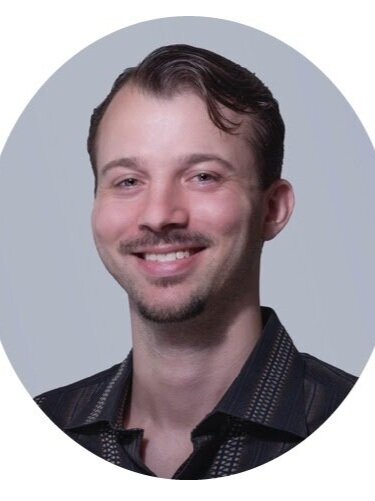Chase DiMarco
Chase DiMarco holds an MS, MBA-HA, and is an MD/PhD-candidate. He is the Founder and educator at FreeMedEd, which he began in 2014 to create and consolidate free educational resources for his classmates. He is the host of Medical Mnemonist Podcast and 1-Minute Preceptor Podcast, creator of several medical education platforms, and is the CEO of FindARotation clinical rotations platform. He has explored many facets of medical education, the psychology of learning, and accelerated learning techniques. As an average student, it wasn’t until after he had attained graduate education that he learned to implement accelerated learning and educational efficiency. He has a passion to make studying easier for all students and to bring great educational resources to the masses.
Can you describe your academic and professional background? What path led you to pursue this field?
My background is in academic learning efficiency, which stemmed from the combination of a constant desire to learn and the realization of my own learning and memory limitations. I've been called a "medical education enthusiast" as well as "the preceptorship guy" or "the clerkship guy" due to many of the projects I've worked on in the medical education (MedEd) fields.
Diagnosed with dyslexia later in life, I knew that there would be certain disadvantages I would have to overcome compared with my peers. This makes certain tasks, such as extensively wordy exams, very difficult and time consuming for me. This became even more noticeable during a particularly difficult period of my life: taking the medical board exams.
This led to exploring less traditional study methods and memory techniques utilized by world memory champions. I attempted to synthesize the current research on learning and practical techniques used in memory-based activities. My aim was to improve my own learning, but also to share these learning strategies with other learners in need.
What do you enjoy about your current job and work environment?
My current occupation has it's pros and cons. With traditional institutional placement so competitive, I ended up forging my own path. This has led to collaborative books, podcasts, online courses, as well as exploring other interesting and unique projects in education.
I suppose the best part about it is that I can work on whatever project I deem interesting without the need for approval higher up in the academic hierarchy. My schedule is my own and creating a balance between my personal and occupational life is under my own control. Of course, this can be a double-edged sword!
What’s changing in your industry? Are there any future trends we should be aware of?
Medical education has finally been exiting the dark ages of lecture-based, instructor-centered learning. More technology, active learning methods, and student-center learning styles have been used in some contemporary academic settings. These changes make learning more enjoyable, more effective, and allow students to "drink from the firehose." However, some academic settings are still resistant to these changes due to the rapidity of education technology shifts and difficulty for some instructors to maintain their continuing education.
Now, MedEd has been altered forever due to the consequences of COVID. Maintaining student, patient, and instructor safety is a grave concern, and finding an adequate balance between safety and education is a unique act for each institution. Further, the wide-spread adoption of telemedicine and other digital technologies has shaped the way in which students may gain clinical experience. New clinical rotations platforms, such as FindARotation, are being developed to help maintain academic integrity for current and future student curriculum.
Do you have any final words of advice for those navigating these career questions? Is there anything you would have done differently given what you know now?
Now is the best time to explore your creative side and see if forging your own non-traditional path is right for you. Many in medicine and STEM-related jobs become burnt-out due to the restrictions placed on them. They then begin their own creative outlets and "side-gigs" to find their original enjoyment of the material they once studied. I ask, "why wait?"
Begin a blog, start a podcast, or even videotape projects regarding a topic you really enjoy. If you do not feel comfortable doing so independently, grab a friend or colleague that you may work with. Guest blog on a website you enjoy or contact the podcast host of a show you listen to. We always love hearing from fans! Explore your creativity as early as possible and it will help create resilience in any path you pick down the line.

